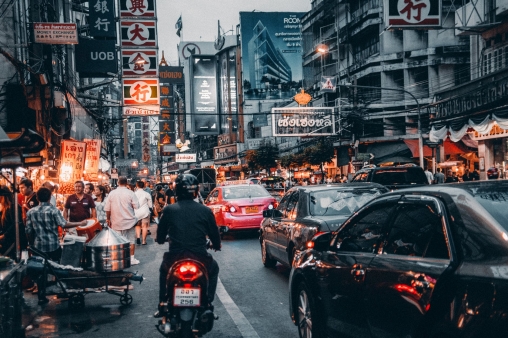
COVID-19 to hit banks in ASEAN's tourism-reliant countries
Local lenders in Singapore and Thailand are at most risk.
Singaporean and Thai banks are the most likely to be hit by the COVID-19 outbreak, with the impact depending on the extent and duration of the coronavirus, reports Fitch Ratings.
Southeast Asian banking sectors are the most vulnerable to the ongoing outbreak and are expected to see weaker economic growth, slower credit growth, and dampened profitability. Markets that are heavily dependent on tourism such as Thailand, or are exposed to China, such as Singapore, face the most risks.
Even before the outbreak, Singaporean banks’ outlook was already negative, with a potential for further asset quality and profitability weakness, noted Fitch.
Also read: Credit costs to weigh on Singapore banks in 2020
Singaporean banks' direct exposure to greater China, which averages 24% of gross loans, is a potential area of stress. On the other hand, local banks’ exposure to China mainly comprise of low-risk assets, which include lending to top-tier corporations, short-term trade loans or liquidity placements with major Chinese banks. But the slowdown in economic activity will still test Singapore banks’ resilience.
Their exposure to Hong Kong, which forms 13% of gross loans, could also be hit, given the more fragile state of the Hong Kong economy and the exposure being more diverse than in China.
Also read: Singapore banks' face slower loan growth in H1 2020
Meanwhile, Thailand's dependence on tourism meant that the SME sector, which accounts for 33% of banks' portfolios, is likely to be significantly affected by the COVID-19 outbreak. In the near-term, the impact on non-performing loans (NPLs) should be mitigated by the banks' high excess provisions, adequate capital buffers with average CET1 ratio of 16.0% by end-2019, and relief measures.
Further, both Singaporean and Thai banks have sufficient loss-absorption buffers to withstand this pressure. Both countries have announced relief measures that are expected to alleviate near-term asset quality and profitability pressures.
For Singapore, the measures include a moratorium on principal repayments for 6-12 months on SME property loans and some retail mortgage loans. For Thai banks, they include a moratorium on principal for up to one year for tourism-related loans, and relief measures on credit-card and personal-loan debt.
Also read: Thai banks' loan growths, asset quality may dwindle due to coronavirus
Further, other markets have announced stimulus packages, and Thailand, Indonesia, Malaysia and the Philippines have cut interest rates.
Indonesia’s largest banks, foreign-owned banks, and small banks headquartered in Bali are expected to be the most hit by the coronavirus. This is due to the fact that Bali is tourism-dependent and is projected to be amongst the hardest-hit markets in the country.
In Vietnam, reduced tourism, disrupted manufacturing supply chains and weaker external demand are likely to put pressure on corporate profitability, and may weigh on banks' asset quality, although tourism-related sectors are only a small part of their credit portfolios.
Further, Vietnam banks have limited capital to buffer against prolonged weakening in profitability, or to stimulate credit growth. An economic slowdown would test the quality of the banks’ newly-extended consumer loans.
Malaysian banks' credible underwriting standards and sufficient earnings and capital buffers should help to contain the virus impact. “However, China is Malaysia's largest export market, meaning a sharp Chinese slowdown would erode corporate earnings,” Fitch added in the note.
Finally, the Philippine economy's exposure to Chinese flows remains relatively light and the banking system's credit exposure to the hospitality sector is also less than 2% of the portfolio. Philippines’ biggest banks are also sufficiently capitalised. Risks arise from the expected slowdown of remittances from key markets such as Hong Kong, Singapore, and Middle East should the outbreak persist in the long-term.






















 Advertise
Advertise








